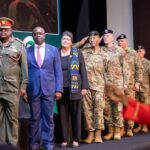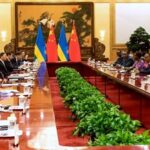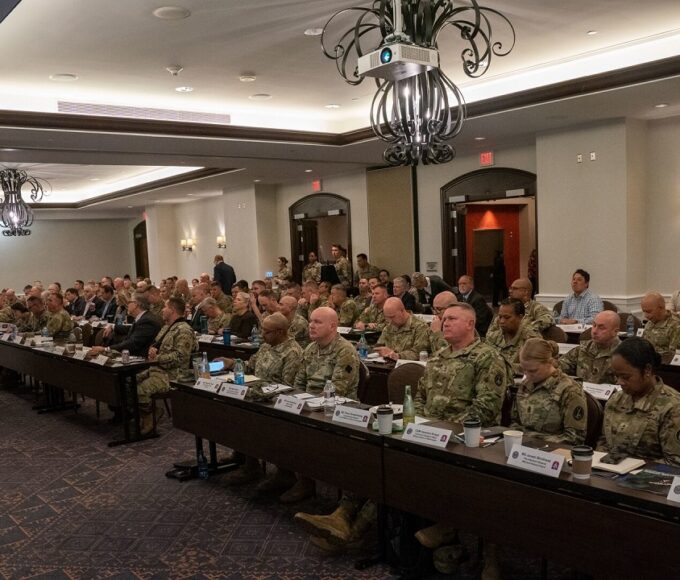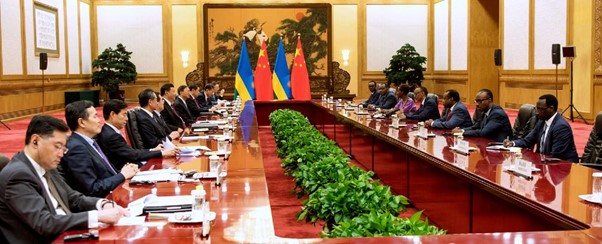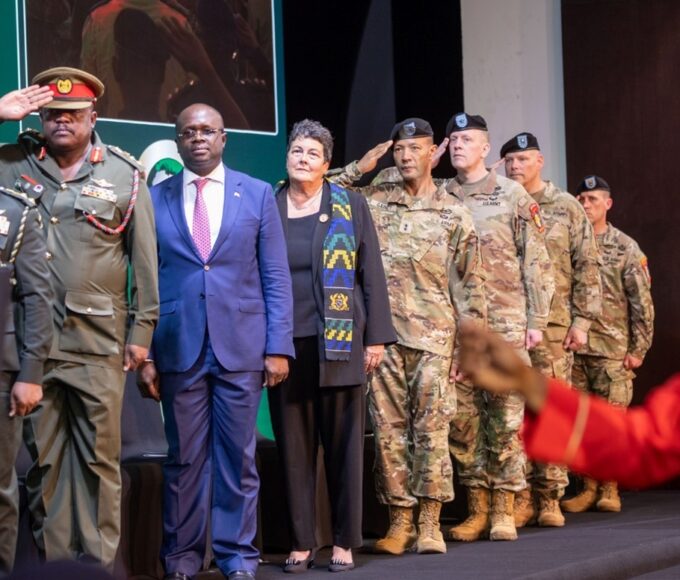African Land Forces Summit: Forging Strategic Ground Power Across the Continent
Delegates agreed on basic standards for Professional Military Education (PME) across the continent. This includes faculty exchanges and curriculum alignment among regional war colleges.

Where ground forces remain the backbone of African defence, the African Land Forces Summit (ALFS) 2025 offered a pivotal platform for senior commanders, defence planners, and strategic partners. Originally scheduled for 7–10 April 2025 in Accra, Ghana, the summit brought together leaders from approximately 40 nations and 300 military personnel to align land warfare strategies and enhance regional security operations.
Summit Context: Why Land Forces Still Matter
Despite growing focus on air, maritime, and cyber domains, ground forces continue to spearhead counterinsurgency, peacekeeping, JDIM, and climate response missions across Africa. With instability in the Sahel, rising urban conflicts, and border tensions, ALFS 2025 served as a timely forum for shaping future land-based defence posture .
Strategic Themes and Key Outcomes
- ALFS 2025: Operationalising ASF Brigades
Aligned with the African Standby Force (ASF) mandate, participants recommitted to regional brigade readiness through realistic drills, logistics planning, and standardised communication strategies .
- Embracing Multi-Domain Integration
For the first time, land forces formally adopted a multi-domain doctrine—linking infantry, armour, engineers, and artillery with ISR, cyber telemetry, and satellite surveillance.
- Border Security Synchronisation
A dedicated session, “Synchronising Border Security within Africa”, examined frameworks for managing insurgencies and organised crime across porous borders.
- Supporting Indigenous Defence Industries
Panels highlighted efforts to locally manufacture boots, small arms, combat vehicles, and rations. Key producers included Nigeria’s DICON, South Africa’s ARMSCOR, and Egypt’s Military Production Authority .
- Reforming Professional Military Education
Delegates agreed on basic standards for Professional Military Education (PME) across the continent. This includes faculty exchanges and curriculum alignment among regional war colleges.
Featured Delegations & Contributions
- Ghana Armed Forces (Host): Focused on enabling logistics and command architecture; summit held at Kempinski, Accra.
- US Army Africa (SETAF‑AF): Co-hosted planning and logistics support—also conducted SELF (Senior Enlisted Leaders Forum).
- Kenya Defence Forces: Shared insights from joint operations targeting al‑Shabaab coordination.
- Nigeria Army: Presented models for urban counterinsurgency and civil‑military operations.
- Ghana military engineers: Highlighted their role in infrastructure support during climate emergencies.
Identified Challenges
- Air Mobility Gaps: Limited strategic airlift in landlocked or expansive areas.
- Doctrine Disparities: Outdated manuals in some armies.
- Civil–Military Friction: Especially in humanitarian contexts.
- Budget Limitations: Hindering sustained reform momentum.
- Gender Imbalance: Few women hold senior leadership, echoing broader inclusion challenges.
Key Declarations from ALFS 2025
- African Army Commanders Forum (AACF): Annual convocation for doctrine alignment and strategic coordination.
- Tactical Doctrine Harmonisation Group: To develop shared infantry, border, and peace support manuals.
- African Army Logistics Exchange (AALE): A digital hub for spare parts coordination and procurement transparency.
- Engineers & Medics in Reserves: Integration to bolster disaster response and national resilience.
Summit Snapshot (7–10 April 2025):
- Participating countries: ~40
- Personnel: ~300
- Chiefs of Army Staff: 30+
- Regional blocs: AU, ECOWAS, EASF, SADC, NARC
- Declarations signed: 4
- New continental initiatives: 4
Grounded Vision in a Complex Environment
Held in Accra, the ALFS 2025 seamlessly integrated strategic foresight with operational reality. Delivering practical frameworks—from multi-domain doctrine to logistics exchanges—the summit underscored that African armies are preparing not just for battle, but for a future defined by ambiguity, environmental stress, and interconnected challenges.
What remains is execution: translating summit outputs into sustained reforms, underpinned by reliable funding, political will, and continental coordination.
Recent Posts
Categories
- Air & Aerospace17
- Border Security15
- Civil Security6
- Civil Wars4
- Crisis5
- Cyber Security8
- Defense24
- Diplomacy19
- Entrepreneurship1
- Events5
- Global Security Watch6
- Industry8
- Land & Army9
- Leadership & Training5
- Military Aviation7
- Military History27
- Military Speeches1
- More1
- Naval & Maritime9
- Policies1
- Resources2
- Security12
- Special Forces2
- Systems And Technology9
- Tech6
- Uncategorized6
- UNSC1
- Veterans7
- Women in Defence9
Related Articles
THE ROLE OF DEFENCE CONFERENCES IN GLOBAL PARTNERSHIPS
Defence conferences have emerged as vital platforms for fostering collaboration and understanding...
ByKing Richard Igimoh, Group Editor ALOOctober 9, 2025African Security Think Tanks and Forums: Shaping the Policy Agenda Beyond the Barracks
For decades, security policy across Africa was confined largely to military barracks...
Byadmag_adminJuly 7, 2025Global Defence Shows and Africa’s Participation: A Soft Power Strategy?
As international defence expos grow in scale and influence—spanning the Gulf to...
Byadmag_adminJuly 7, 2025Recapping Africa’s Largest Military Exercises: Who Led, Who Learned, What Changed?
Military exercises are no longer mere drills; they are geopolitical statements, readiness...
Byadmag_adminJuly 7, 2025





